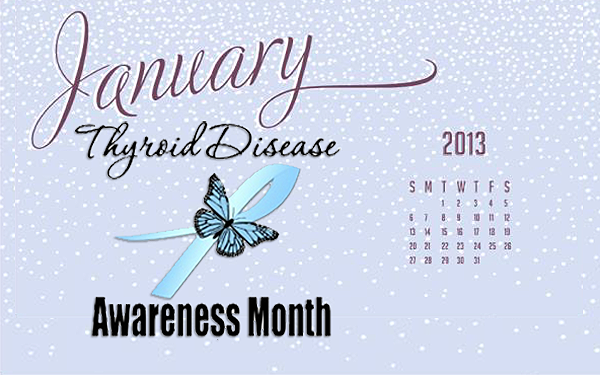January is Thyroid Disease Awareness Month. Dr. Gary Gross of the Marino Center for Progressive Health shares his insights on how exactly a disease of this tiny gland can wreak havoc with a woman’s fertility if left undiagnosed or untreated.

By Gary Gross, MD
A normally functioning thyroid gland or adequate medical replacement of thyroid function with bio-identical, but often manufactured, hormones is essential to ovulation, to implantation and to maintenance of a healthy pregnancy. The active thyroid hormones govern the rate of metabolism in most organs, i.e., in the liver, bone, kidneys, ovaries, pituitary, etc.
The thyroid gland produces two principal hormones, thyroxine or T4 and tri-iodothyronine or T3. The former is long-acting and its principal role may be as the substrate for the rapid-acting T3, most of which is produced outside the thyroid, in the target cells affected by thyroid. Most of the thyroid hormones present in circulation are bound to a protein made by the liver called thyroxine binding globulin (TBG). When so bound, the hormone is inactive and is unable to be converted to T3 and unable to play a major role in the rate of metabolism throughout the body.
The level of free estradiol in the body determines how much TBG is produced by the liver and thus how much thyroid hormone is needed to maintain body function and fertility. If the body’s metabolic needs are not being met, this is detected by the hypothalamic/pituitary axis and leads to the pituitary generating TSH or thyroid stimulating hormone which exhorts the thyroid gland to produce more thyroid hormone.
It seems that both fertility needs and maintenance of a pregnancy require that there be enough free thyroid hormone in the environment that the TSH level ranges between 0.5 and 2.0 mIU per/ml. Since a rapidly rising estradiol level increases the amount of TBG and the percent of thyroid hormone that is bound and physiologically inactive, the thyroid gland has to be able to keep up during spontaneous ovulation, or gonadotropin stimulation of the ovaries, or a pregnancy, during each of which situation, the levels of free estrogen rise dramatically. If the thyroid gland cannot keep up, TSH will rise above 2.0 and thyroid hormones must be given to the patient to make up the difference or make sure that there is no performance gap in the first place.
Thyroid hormone determines how rapidly estradiol is metabolized and how much estradiol is bound to its binding protein, SHBG (sex hormone binding globulin). If there is too much thyroid hormone in the environment, estradiol is metabolized more quickly or soaked up by SHBG so that it never reaches target structures like the lining of the uterus whose development and maturation will suffer, causing failures of implantation.
If too little thyroid hormone is present, there will be less SHBG and slower estradiol metabolism, more free estradiol in the environment and signals to the pituitary may become confused, leading to lack of ovulation or too heavier periods because more estradiol reached the endometrial lining to promote its growth.
When the thyroid is not in balance during the follicular phase, ovulation may not occur, when the thyroid falls behind after ovulation, implantation may fail. When it falls behind after pregnancy has commenced, early miscarriage can happen. Later on, too little thyroid hormone can lead to cretinism and too much thyroid hormone to miscarriage.
About the Author
Dr. Gary Gross trained at Yale and came to Boston to set up the infertility program at Beth Israel Hospital in 1970. One of the early members of the national board of directors of RESOLVE, he served on the board for nearly 20 years, much of that time on the executive committee and part of it as the Chair of the Board. Dr. Gross been a member of the Harvard Medical School faculty since 1970, medical director for the ABCD federally funded family planning program in greater Boston since 1975 and the gynelcological/reproductive endocrine consultant to the Marino Center since 2005.
